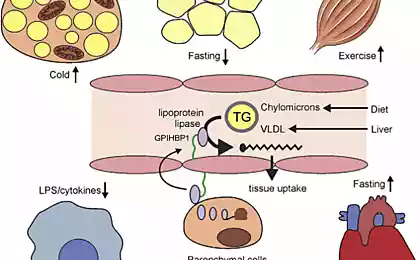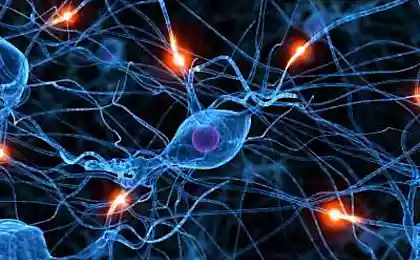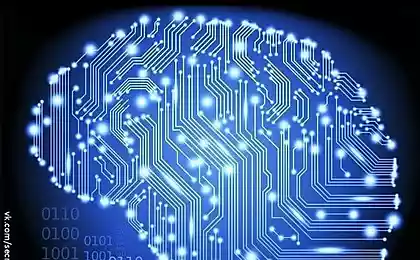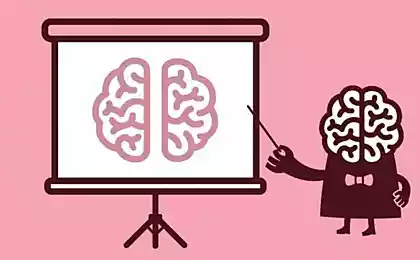448
What if your brain is working on autopilot
Environment. It is the day of the week, when we crossed the top of the mountain and gently roll down to the weekend. If this seem a bit better than tedious Monday or Tuesday, you are not alone. According to the wealth index, compiled by Gallup and Healthways, the worst day of the week — Tuesday. However, compared with the output of all working days look almost equally disgusting.
However, research suggests that Monday that we are so afraid of, has a positive side. It means a new beginning, and our behavior on Monday shows that on this day, our brain is better prepared to make decisions. Here's how to properly use it.

What happens to the brain on Monday
Researchers at the University of Pennsylvania found that on Monday there has been a surge of search queries with the word "diet", going to the gym and for new commitments (similar effects are seen in the New year, at the beginning of a new semester and on the day of birth.) Another study showed that on Monday more common search queries on how to quit Smoking.
The researchers suggest that when we are confronted with a demarcation line that separates one time from another, we more sensibly look at your past failures.
And perhaps these pivotal points allow us to escape from the routine and think more widely. As if we stop worrying about whether or not we quickly climb the stairs, and think, and to correct the wall the ladder was leaning against.
This is extremely important in terms of personal and professional success. But the problem is that such a chance is rarely. Every day we are faced with countless potential solutions. Whether to go to work or call in sick? Whether to make a donation to your favorite charity? Whether to call parents at 10 PM? Or in 9? To call at all?
In most cases we don't take these decisions consciously. We do not make a choice, we operate on autopilot and don't even notice that it was about the decision.
To understand the choice
Every second the brain processes about 10 million bits of information, and only 50 of them are associated with conscious thoughts. In other words, it is only 0.0005%. We are programmed not to think, to avoid constant decision-making.
Our brain is simply not able to scan all this sea of options surrounding us every moment, and reflect on all of these potential solutions. The brain provides this choice to the subconscious.
To decide whether to switch to a conscious decision-making brain correlates of observed reality with the reality we expect to see. And when expectations are contrary to reality, we will notice something new or threatening, then enables conscious decision-making.
And for some reason Mondays (and January 1, the first day of every month, etc.) something hurt us, encourage us to stop and think in the right direction we are moving. They force us to reflect on the decision that we would have otherwise just ignored. This is an important opportunity to improve our behaviour, both at home and at work.
Philosophers since ancient times argue, are people rational or irrational. Recently, the dispute has shifted in the other direction: better the decisions that are made on the basis of logic, or those that rely on habits and reduce intellectual efforts.
But there are even more fundamental question: what motivates us to denote that we have to make a decision? Scientists still argue on this topic, but at least it is clear that we tend to pause at the beginning of any new time period.
Mens Soul that never knew...
Life without expectations
The effect of this feature of the brain can be strengthened if specifically to embed in your schedule with something eye-catching breaks. We really need to escape from the routine and not just stand by to watch as the week rolls from Monday to Friday.
Then we will be more conscious approach to the choices we make, both in important cases and in the details.published
(from the book The Power of Fifty Bits: The New Science of Turning Good Intentions into Positive Results)
Author: Bob Bottom
P. S. And remember, just changing your mind — together we change the world! ©
Source: ideanomics.ru/?p=6908
However, research suggests that Monday that we are so afraid of, has a positive side. It means a new beginning, and our behavior on Monday shows that on this day, our brain is better prepared to make decisions. Here's how to properly use it.

What happens to the brain on Monday
Researchers at the University of Pennsylvania found that on Monday there has been a surge of search queries with the word "diet", going to the gym and for new commitments (similar effects are seen in the New year, at the beginning of a new semester and on the day of birth.) Another study showed that on Monday more common search queries on how to quit Smoking.
The researchers suggest that when we are confronted with a demarcation line that separates one time from another, we more sensibly look at your past failures.
And perhaps these pivotal points allow us to escape from the routine and think more widely. As if we stop worrying about whether or not we quickly climb the stairs, and think, and to correct the wall the ladder was leaning against.
This is extremely important in terms of personal and professional success. But the problem is that such a chance is rarely. Every day we are faced with countless potential solutions. Whether to go to work or call in sick? Whether to make a donation to your favorite charity? Whether to call parents at 10 PM? Or in 9? To call at all?
In most cases we don't take these decisions consciously. We do not make a choice, we operate on autopilot and don't even notice that it was about the decision.
To understand the choice
Every second the brain processes about 10 million bits of information, and only 50 of them are associated with conscious thoughts. In other words, it is only 0.0005%. We are programmed not to think, to avoid constant decision-making.
Our brain is simply not able to scan all this sea of options surrounding us every moment, and reflect on all of these potential solutions. The brain provides this choice to the subconscious.
To decide whether to switch to a conscious decision-making brain correlates of observed reality with the reality we expect to see. And when expectations are contrary to reality, we will notice something new or threatening, then enables conscious decision-making.
And for some reason Mondays (and January 1, the first day of every month, etc.) something hurt us, encourage us to stop and think in the right direction we are moving. They force us to reflect on the decision that we would have otherwise just ignored. This is an important opportunity to improve our behaviour, both at home and at work.
Philosophers since ancient times argue, are people rational or irrational. Recently, the dispute has shifted in the other direction: better the decisions that are made on the basis of logic, or those that rely on habits and reduce intellectual efforts.
But there are even more fundamental question: what motivates us to denote that we have to make a decision? Scientists still argue on this topic, but at least it is clear that we tend to pause at the beginning of any new time period.
Mens Soul that never knew...
Life without expectations
The effect of this feature of the brain can be strengthened if specifically to embed in your schedule with something eye-catching breaks. We really need to escape from the routine and not just stand by to watch as the week rolls from Monday to Friday.
Then we will be more conscious approach to the choices we make, both in important cases and in the details.published
(from the book The Power of Fifty Bits: The New Science of Turning Good Intentions into Positive Results)
Author: Bob Bottom
P. S. And remember, just changing your mind — together we change the world! ©
Source: ideanomics.ru/?p=6908
























